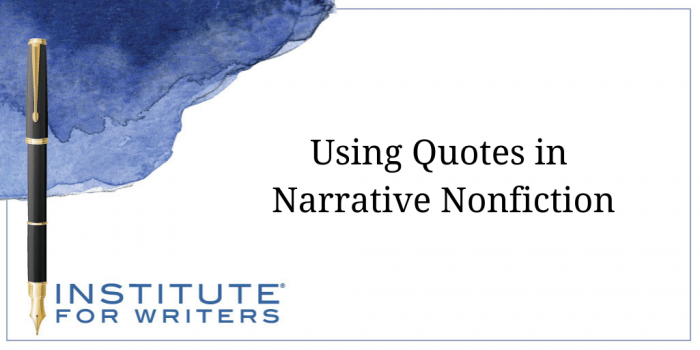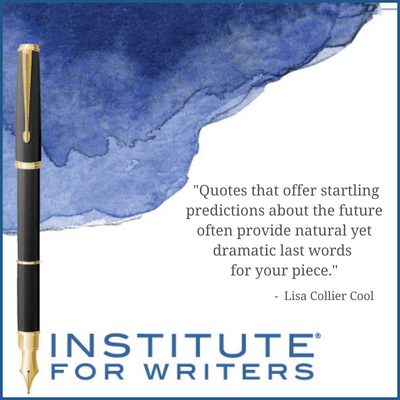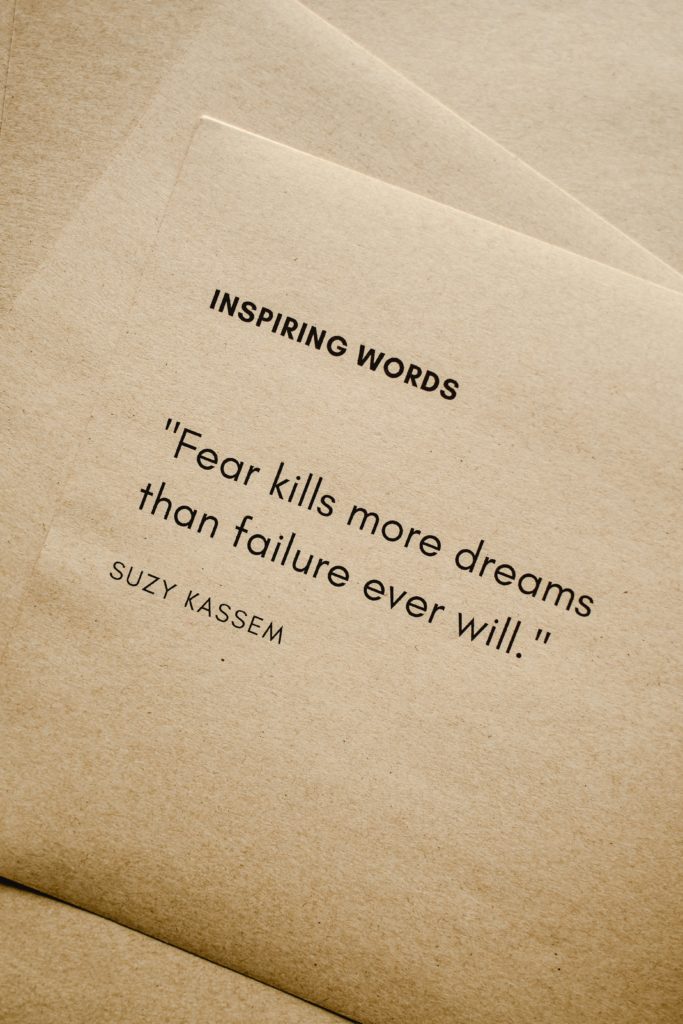1000 N. West Street #1200, Wilmington, DE 19801
© 2024 Direct Learning Systems, Inc. All rights reserved.

“They say. What say they? Let them say.” These words appear beneath a gallery at “The Red House,” a stately Victorian home-turned-hotel in Bournemouth, England. This house was designed in 1877 by the famous socialite and actress Lillie Langtry as a private retreat. With those eight words, Langtry indicated that she didn’t mind what people said about her, but these same words offer useful ideas for nonfiction writers. We often care a great deal what people say, so we spend time searching for words spoken by experts, historical figures, and other subjects of our nonfiction in order to quote them to include when writing a nonfiction novel or article.
If you think about the nonfiction you have read with interest, chances are the author used quotes effectively. Similar to dialogue in fiction scenes, quotes add life and variety along with “show; don’t tell.” Quotes can sum up key points and reflect the tone and/or themes. They give works of narrative nonfiction the sense of sound as readers “hear” people talking. Quotes can also add visual variety on the page. Readers notice quotation marks, so quotes can renew their interest as they move forward.
 What other purposes do quotes serve?
What other purposes do quotes serve?
Imagine the difference between an author’s description of how it felt to be a child laborer in a nineteenth-century textile mill vs. quotes from the young people themselves. Or for example, if an author wrote, “In President Franklin D. Roosevelt’s first inaugural address, in 1933, he said don’t be afraid of anything except of being afraid.” Paraphrasing is not as powerful as quoting his speech, “…the only thing we have to fear is…fear itself…”
Consider how these quotes from George Washington Carver reveal his values: “It is simply service that measures success.” and “How far you go in life depends on your being tender with the young, compassionate with the aged, sympathetic with the striving and tolerant of the weak and strong. Because someday in your life you will have been all of these.”
Quotes from respected authorities and experts add credibility to those points the author wants to make. Likewise, quotes from people with diverse opinions can help readers understand the pros and cons of a situation and the different sides of an issue.
Consider the following passages:
Author statement: After Holland surrendered on March 15, 1940, German troops marched triumphantly through the streets, sparking fears among the Dutch, especially those who were Jewish, since people had heard about how the Nazis treated Jews.
Quote: Ida Vos was eight years old on March 15, 1940. She later wrote about what happened after Holland surrendered and German troops reached her city: “They are marching and singing songs that have words I don’t understand. ‘They’re going to kill all the Jews!’ shouts my mother. I am afraid. I have a stomachache. I am Jewish.”
Author and literary agent Lisa Collier Cool suggests, “Since quotes also make excellent openers and closers, look for unusually provocative, insightful, or profound remarks for possible leads or conclusions.” These can be startling statements or words that engage the reader’s emotions or curiosity. Sometimes an ironic quote is effective. For example, I began a book about the Great Depression with these prophetic words from the great humorist and newspaper columnist Will Rogers, written on the eve of the Depression in September 1929: “No nation in the history of the world was ever sitting so pretty. If we want anything, all we have to do is go and buy it on credit. So that leaves us without any economic problem whatever, except perhaps someday to have to pay for them. But we are certainly not thinking about that this early.”
At the end of a biography, a quote from the subject, or from someone who knew them, might sum up the subject’s philosophy of life or legacy. A final quote might also offer advice or inspiration. Lisa Collier Cool adds, “Quotes that offer startling predictions about the future often provide natural yet dramatic last words for your piece.” But experts warn writers not to end with quotes that are so surprising or disconnected from what came before that they leave readers confused.
Choosing and using quotations obviously depends on the nature of the nonfiction work. In general, use quotations when your own words would not be as effective, because the quote is worded so well and expresses the point with power and clarity. For nonfiction that involves controversy and debates, find quotes from respected authorities and experts, and from those with differing opinions.
Don’t use quotes just to state basic facts, such as names, dates, statistics, or other information you can easily state yourself. Also don’t waste space quoting trivialities. It doesn’t matter if the subject of your interview remarks on the weather if that has nothing to do with your topic.
Avoid using too many quotes as well. They should enhance, not overwhelm, the material.
 For nonfiction, quotes should be accurate and come from a reliable, identifiable source. According to the celebrated author Joseph McPhee (interviewed by Norman Sims), “The nonfiction writer is communicating with the reader about real people in real places. So if those people talk, you say what those people said. You don’t say what the author decides they said.”
For nonfiction, quotes should be accurate and come from a reliable, identifiable source. According to the celebrated author Joseph McPhee (interviewed by Norman Sims), “The nonfiction writer is communicating with the reader about real people in real places. So if those people talk, you say what those people said. You don’t say what the author decides they said.”
Along with accuracy, make sure quotes relate clearly to the surrounding material. Readers should not have to stop and wonder why the quote is there. It should serve a clear purpose and fit smoothly into the “storyline” or discussion, so don’t add a quote just because you really like it or think it’s time for another quote.
Connect the quote to the material with transitions and identifying information. Don’t just place it in a paragraph with no introduction. If readers see words in quotation marks with no speaker tag line or source, they might wonder if this is an actual quote. Maybe the author punctuated the segment incorrectly or is quoting another author’s text?
Certain words and phrases can alert readers to a quotation. For instance;
• As Dr. X explains in the May 2018 issue of Medical Science, [“quote”].
• In his book All About Writing, Author X stresses the importance of accuracy, saying, [“quote”].
• After examining the evidence, X concluded [“quote”].
As with all nonfiction, research is vital for identifying quotes and interview sources. Search with a purpose. Who has information? How can you obtain it? How will it fit into your nonfiction “story”? Depending on your subject, start with the usual primary sources, including letters, diaries, interviews, speeches, and reminiscences, along with solid secondary sources. Dig deeper if necessary. Check local historical societies, schools, and universities. Look for sources in the footnotes of published works. You can learn more about diverse sources by checking out the source notes and bibliographies in respected nonfiction books, such as Laura Hillenbrand’s Seabiscuit: An American Legend.
For interviews, prepare well and structure questions beforehand. Pick promising interview subjects. For example, while writing about archaeology in ancient Africa, I interviewed an archaeologist who took part in excavations in Mali, where her team discovered West Africa’s oldest known city. I read about her in an archaeological journal and then contacted the university where she taught.
Quotes are an important tool for narrative nonfiction writers, so as you craft nonfiction, put them to work for you. Go treasure-hunting for those quotable gems that will make your work more informative, entertaining, and meaningful. Then, if the quote fits…use it.
Are your quotes packing a punch in your nonfiction work? Let our one-one instructors help you write effective nonfiction. Take our assessment and be matched with a mentor to fit your goals!
Victoria Sherrow has published short stories, articles and books (fiction and nonfiction) for readers aged preschool through adult. Her books have received starred reviews and been honored by the American Library Association, Parents Choice Gold Award, National Association for the Advancement of Science, and NYPL Best Books for the Teenage, among others. Victoria has taught at The Institute of Children’s Literature for more than 25 years and has also been an assistant editor and writing contest judge. Recently, she revised and polished a 230,000-word book for adults.
1000 N. West Street #1200, Wilmington, DE 19801
© 2024 Direct Learning Systems, Inc. All rights reserved.
1000 N. West Street #1200, Wilmington, DE 19801
© 2024 Direct Learning Systems, Inc. All rights reserved.
1000 N. West Street #1200, Wilmington, DE 19801
© 2024 Direct Learning Systems, Inc. All rights reserved.

1000 N. West Street #1200, Wilmington, DE 19801
© 2025 Direct Learning Systems, Inc. All rights reserved.

1000 N. West Street #1200, Wilmington, DE 19801
©2025 Direct Learning Systems, Inc. All rights reserved. Privacy Policy.
2 Comments